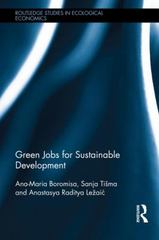Question
The various ways in which government intervention may increase welfare and the considerations that governments should take into account when intervening in the economy. For
The various ways in which government intervention may increase welfare and the considerations that governments should take into account when intervening in the economy. For example, governments can provide public goods, such as infrastructure and education, which are not provided by the private sector and benefit the whole population. Furthermore, governments can intervene in markets to reduce market failure, such as in situations where private firms do not provide certain goods or services due to a lack of profitability. When considering whether to intervene in the economy, governments should take into account a number of considerations. Secondly, governments should consider the potential benefits of the intervention. To determine the most effective form of intervention, governments should also consider their ability to implement the intervention. For example, the implementation of market regulation can be difficult and require extensive expertise in economics, while the provision of public goods requires fewer resources, but may require greater political support. In conclusion, government intervention can increase welfare by providing public goods, redistributing income and wealth, and reducing market failure. (Cline, 2020)When considering whether to intervene, governments should consider the costs and benefits of the intervention, as well as their ability to effectively implement the intervention. By taking these considerations into account, governments can ensure that their interventions are effective and beneficial to the economy.
Answer the questions below:
What do you think about all of this? We just looked at fiscal and monetary policy and we've definitely seen some pros and cons. We know, more so with fiscal policy, that there can be recognition lags, administrative lags, and over and undershooting...and we also know that we have inverse relationships. What if we use policies to increase GDP and lower unemployment, we might be headed for inflation (like now).
With thoughts about infrastructure and education though, I'm definitely pro-government intervention. As you're saying, this pays off a ton in the future. The government increases spending. This will increase GDP. Is now the time to try to cut some government spending?
Step by Step Solution
There are 3 Steps involved in it
Step: 1

Get Instant Access to Expert-Tailored Solutions
See step-by-step solutions with expert insights and AI powered tools for academic success
Step: 2

Step: 3

Ace Your Homework with AI
Get the answers you need in no time with our AI-driven, step-by-step assistance
Get Started


